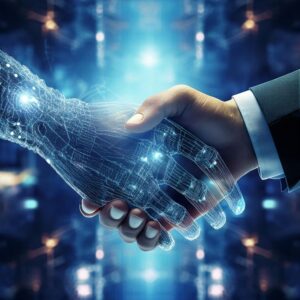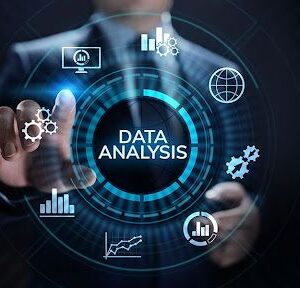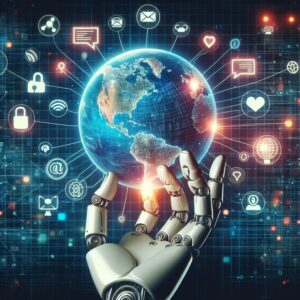We live in a time when technology continues to reinvent our way of living, therefore keeping up with the latest tech skills is essential for anyone looking to advance their career. As we step more into this year, the field of technology continues to offer exciting opportunities for those who invest in learning new skills.
For tech professionals (developers, engineers, IT professionals, and others), staying ahead means mastering the skills that will dominate the job market in 2025. For startup founders, hiring managers, and CTOs, understanding these skills is crucial for building innovative, future-proof teams and products.
In this article, we’ll look into the Top 10 Fastest-Growing Tech Skills in 2025, providing actionable insights for both candidates and clients. Whether you’re looking to upskill or hire top talent, this guide will help you navigate the future of tech. The goal is to provide you with a clear understanding of where the industry is headed and how you can position yourself at the forefront of technological advancement.
Let’s explore the skills that are setting the stage for the next generation of tech professionals and become a part of this exciting journey into the future.
1. Artificial Intelligence & Machine Learning

Artificial Intelligence (AI) and Machine Learning (ML) continue to redefine how problems are approached and solved. These fields empower computers to mimic human behavior, analyze vast amounts of information, and learn from patterns, all without constant human intervention. Right now, AI and ML are not just academic concepts; they are tools being actively used to craft smarter applications, improve customer interactions, and even enhance creative processes.
Key Applications
- Predictive Analytics: AI models analyze historical data to predict future trends. For instance, financial institutions use predictive analytics to assess credit risk and detect fraud.
- Natural Language Processing (NLP): NLP powers chatbots, virtual assistants (like Siri and Alexa), and sentiment analysis tools. Companies like Zendesk use NLP to automate customer support.
- Computer Vision: This technology enables machines to interpret visual data. Applications include facial recognition (used by Apple’s Face ID) and autonomous vehicles (like Tesla’s self-driving cars).
Imagine software that can adjust its behavior based on user input or detect subtle trends within enormous data sets. That’s the promise of AI and ML. From image recognition to natural language processing, these techniques allow for more intuitive interfaces and smarter automation.
Courses in neural networks, deep learning, and reinforcement learning are now more accessible than ever, inviting enthusiasts to roll up their sleeves and get hands-on experience. Is this meant to be here?Embracing AI and ML today opens the door to roles that are central to research, product development, and innovative application design.
2. Data Science & Analytics

Data Science and Analytics have become indispensable in our information-rich age. Data is the new oil, and the ability to analyze it is a game-changer. This year, the global data science market is expected to reach $322.9 billion.
At its core, data science involves gathering, processing, and analyzing data to derive meaningful insights. This skill set enables professionals to help organizations make informed decisions based on factual data rather than mere assumptions.
Companies rely on data science to optimize operations, improve user experiences, and predict future outcomes. By leveraging tools like Python, R, and various data visualization software, professionals can transform raw data into actionable intelligence. This capability is a key component of the In-Demand Tech Skills 2025 and is vital for roles in research, development, and strategic planning.
Data skills can lead to roles like Data Analyst, Business Intelligence Developer, and Data Engineer, with salaries averaging $100,000+.
Data-driven decisions can improve customer insights, operational efficiency, and profitability. For example, Starbucks uses data analytics to personalize marketing campaigns, increasing customer retention by 20%.
Key Applications
- Data Mining: Extracting insights from large datasets. Retailers like Walmart use data mining to optimize inventory management.
- Data Visualization: Creating dashboards and reports using tools like Tableau and Power BI.
- Predictive Modeling: Forecasting trends and outcomes. For instance, airlines use predictive modeling to optimize flight schedules.
Beyond the technical skills, successful data scientists are often excellent problem solvers and creative thinkers, capable of translating complex datasets into clear, compelling narratives.
As more industries recognize the value of data-driven decision-making, expertise in data science and analytics remains a cornerstone of modern technological proficiency.
3. Cloud Computing
Cloud computing has redefined the way organizations manage their IT resources. By offering scalable and flexible solutions, cloud services allow businesses to access computing power, storage, and applications over the Internet. This approach reduces the need for significant upfront hardware investments and enables quick deployment of new applications.
With platforms such as AWS, Azure, and Google Cloud, cloud computing has become a critical skill for modern IT professionals.
The move to the cloud is transforming how applications are developed, deployed, and maintained. It allows for remote collaboration, streamlined workflows, and improved data management. Professionals with cloud expertise are capable of designing and managing complex cloud architectures that support a range of applications; from web services to mobile apps. Learning cloud computing also means understanding key concepts like virtualization, containerization, and serverless computing, all of which are essential for building robust systems.
Cloud adoption can reduce IT costs and improve scalability. For example, Netflix migrated to AWS to handle its massive streaming demands.
Key Applications
- Infrastructure as a Service (IaaS): Provides virtualized computing resources. Examples include AWS EC2 and Google Compute Engine.
- Platform as a Service (PaaS): Offers development and deployment platforms. Examples include Heroku and Google App Engine.
- Software as a Service (SaaS): Delivers software applications over the Internet. Examples include Salesforce and Slack.
With practice and dedication, cloud computing skills can lead to roles that involve system integration, application development, and IT infrastructure management, making it a highly rewarding area of study.
4. Cybersecurity

Cybersecurity remains at the forefront of concerns for organizations and individuals alike. As our reliance on digital technologies increases, so does the need to protect sensitive data and secure online systems. Cybersecurity involves a range of practices designed to defend against threats such as unauthorized access, data breaches, and malicious attacks. This field encompasses various strategies, from network security to application protection, ensuring that systems remain safe and resilient.
Professionals in this area are trained to identify vulnerabilities, implement robust defense mechanisms, and respond effectively to security incidents.
Key Applications
- Network Security: Protects data in transit and at rest. For example, VPNs encrypt internet traffic to secure remote work.
- Endpoint Security: Secures devices like laptops, smartphones, and IoT devices. Tools like CrowdStrike provide real-time threat detection.
- Cloud Security: Ensures data safety in cloud environments. Companies like Netflix rely on cloud security to protect user data.
Courses in ethical hacking, risk management, and security compliance provide a comprehensive foundation for anyone looking to enter this field.
5. Internet of Things (IoT)
The Internet of Things (IoT) is transforming ordinary objects into smart devices capable of communicating and sharing data. By integrating sensors and connectivity into everyday items, IoT allows for greater efficiency and improved functionality in homes, offices, and industrial settings. From smart appliances to connected vehicles, IoT is revolutionizing how we interact with technology in our daily lives.
IoT involves a blend of hardware, software, and communication protocols to create systems that are both intelligent and interactive. This integration enables devices to collect data, analyze it, and respond to user needs in real time. As a result, industries such as manufacturing, healthcare, and transportation are benefiting from enhanced operational efficiency and improved customer experiences. Mastering IoT skills means understanding how to design, deploy, and manage interconnected devices that work seamlessly together.
Key Applications
- Smart Homes: Automating home appliances.
- Industrial IoT (IIoT): Optimizing manufacturing processes.
- Wearable Technology: Collecting and analyzing personal data.
Embracing IoT as one of the Future Tech Skills means positioning yourself at the forefront of technological integration, where innovation meets practicality. With consistent practice and exploration, you can build a strong foundation in IoT that will serve as a key asset in a technology-centered career.
6. Blockchain Technology
While often associated with cryptocurrencies, blockchain technology offers much more than digital currency applications. At its core, blockchain is a distributed ledger system that provides a secure and transparent method for recording transactions. This technology is finding applications in areas such as supply chain management, healthcare records, and secure document verification. Its decentralized nature ensures that data is tamper-resistant and verifiable by all participants.
Blockchain’s potential lies in its ability to build trust without the need for a central authority. By using cryptographic techniques, blockchain ensures that records remain accurate and secure. This makes it an appealing option for industries where data integrity and transparency are paramount.
Key Applications
- Smart Contracts: Automating agreements with code.
- Decentralized Finance (DeFi): Creating financial systems without intermediaries.
- Supply Chain Management: Tracking goods with blockchain.
Professionals with blockchain expertise can work on developing decentralized applications (dApps), smart contracts, and other innovative solutions that leverage this technology.
To build competence in this area, aspiring learners can explore introductory courses, online tutorials, and hands-on projects that cover blockchain fundamentals. By gaining practical experience with blockchain platforms and development tools, you will be well-prepared to contribute to projects that are redefining how trust and transparency are maintained in digital transactions.
7. Robotics Process Automation (RPA)
Robotics Process Automation (RPA) focuses on the use of software robots to automate repetitive, rule-based tasks. This approach allows organizations to improve operational efficiency and reduce the burden of manual tasks. By automating routine processes, RPA enables teams to focus on strategic initiatives and higher-value activities. The technology is applicable in various areas, including data entry, process management, and customer service operations.
RPA is built on the principle of using technology to mimic human actions in performing tasks such as data processing, form filling, and system monitoring. These software bots are designed to interact with applications just as a human would but with greater speed and accuracy. As organizations seek to optimize their internal workflows, skills in RPA are becoming increasingly sought after.
Key Applications
- Data Entry & Migration – Automating manual data tasks.
- Invoice Processing – Streamlining payment workflows.
- Customer Service – Handling routine queries and updates.
- Payroll Processing – Automating salary and compliance tasks.
Learning RPA involves understanding the design and deployment of automation tools, along with best practices for integrating them into existing systems. As you build your expertise, you will be equipped to contribute to projects that streamline operations and enhance efficiency in various sectors.
8. Augmented Reality (AR) & Virtual Reality (VR)
Augmented Reality (AR) and Virtual Reality (VR) are technologies that create immersive experiences by merging digital elements with the physical world or generating entirely virtual environments. AR enhances the real world by overlaying digital information onto live views, while VR transports users to simulated environments for purposes such as training, education, or entertainment. These technologies are increasingly used in sectors ranging from gaming and education to healthcare and real estate.
The ability to create immersive, interactive experiences is a hallmark of AR and VR. Professionals working in this area are involved in designing, developing, and implementing solutions that transform how users interact with digital content. Whether it’s creating realistic simulations for training purposes or developing engaging entertainment experiences, AR and VR are pushing the boundaries of what is possible in digital innovation.
Key Applications
- Gaming: Creating immersive experiences.
- Healthcare: Simulating surgeries for training.
- Retail: Offering virtual try-ons.
Recognized as part of the In-Demand Tech Skills 2025, mastering AR and VR requires a blend of creativity and technical knowledge. By diving into AR and VR projects, you can build the skills necessary to create experiences that captivate and inform users in novel ways.
9. DevOps & Agile Methodologies
DevOps and Agile methodologies have reshaped how software is developed and delivered. These approaches emphasize collaboration, continuous improvement, and streamlined workflows to achieve faster and more efficient project outcomes. DevOps bridges the gap between development and operations by fostering close collaboration and automation, while Agile provides a framework for iterative progress and quick adaptations to change.
Practitioners in this field focus on building environments where teams can work together seamlessly to create, test, and deploy software. The integration of automation tools, continuous integration/continuous deployment (CI/CD) practices, and effective communication channels are central to success in this area.
Key Applications
- CI/CD Pipelines: Automating software deployment.
- Infrastructure as Code (IaC): Managing infrastructure with code.
- Monitoring and Logging: Tracking system performance.
Learning about DevOps and Agile means understanding how to implement processes that enhance teamwork, improve project outcomes, and reduce time-to-delivery for software products.
10. Quantum Computing
Quantum computing represents one of the most intriguing areas of modern science and technology. Unlike traditional computers that use binary bits, quantum computers leverage the principles of quantum mechanics to perform complex computations at unprecedented speeds. Although still in its early stages, quantum computing holds promise for solving problems that are currently intractable for classical systems.
Researchers and technologists are exploring how quantum algorithms can address challenges in fields such as cryptography, optimization, and complex simulations. While the technology is not yet mainstream, the potential applications are vast, making quantum computing a subject of great interest among forward-thinking professionals.
Key Applications
- Cryptography: Developing quantum-resistant encryption.
- Drug Discovery: Simulating molecular interactions.
- Optimization: Solving complex logistics problems.
As an emerging field, it invites curious minds to delve into a new realm of computation that promises to reshape our understanding of processing power. As one of the Top Tech Skills 2025, quantum computing offers a unique challenge and the chance to be part of pioneering projects that could redefine problem-solving methods in technology.
Future Trends and the New Scene of Fastest-Growing Tech Skills

As we look toward the future, it is clear that technological progress will continue to accelerate in remarkable ways. The skills discussed above are set to play a crucial role in shaping the way organizations and individuals approach innovation. With advancements in automation, data processing, and digital security, the scene of tech expertise is rapidly becoming more specialized and interconnected.
The focus for professionals should be on continuous learning and adaptability. Staying informed through online communities, technical workshops, and educational platforms can help you maintain proficiency in these critical areas. Embracing change and experimenting with new tools and techniques will ensure that you remain at the forefront of technological progress.
In a world where new challenges arise frequently, these skills offer a pathway to contribute effectively and create lasting impact.
Conclusion
Now is the time to take action. Consider exploring the resources and learning paths mentioned throughout this article to begin your journey in one or more of these fields. By investing in these Fastest-Growing Tech Skills and aligning yourself with the Top Tech Skills 2025, you will be well-prepared to contribute to tomorrow’s technological breakthroughs.
Elevate your tech journey by joining the Betternship community—a community of innovators and tech professionals. Access exclusive resources, webinars, and collaborative projects that boost your expertise and connect you with like-minded peers. Take the leap and join Betternship today to shape your future in technology.
Stay curious, remain engaged, and continue to build a skill set that meets the demands of a technology-focused future.